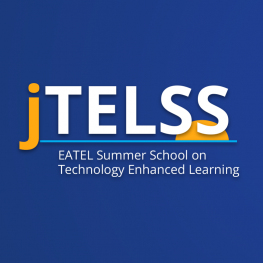Speakers
Daniel Majonica
Open University of the Netherlands / Cologne Game Lab, GermanyKhaleel Asyraaf Mat Sanusi
Cologne Game Lab, TH Köln, GermanyRoland Klemke
Open University of The Netherlands, The Netherlands / TH Köln, GermanyStart
05/06/2023 - 10:30
End
05/06/2023 - 12:00
Framework for immersive learning environments of AI-assisted psychomotor skills training – IMPECT
Monday 05/06 10:30-12:00h
Workshop Space A
Abstract
The proposed workshop aims to introduce participants to a new framework for teaching psychomotor skills using immersive learning environments (ILEs) and artificial intelligence (AI). The workshop will provide an opportunity for participants to experiment with the framework. The workshop will utilize a mixed-methods approach to collect both quantitative and qualitative data to evaluate the effectiveness of the framework and get insights on how the framework can be improved, respectively. The workshop aims to provide a practical and interactive learning experience for participants, allowing them to gain a deeper understanding of how the framework can be applied to their own teaching practices. By participating in this workshop, educators and instructional designers will gain valuable insights into how ILEs and AI can be leveraged to enhance the teaching of psychomotor skills. The workshop will also contribute to the ongoing development of the framework, providing valuable feedback and insights for future iterations.
Needs Analysis
Our workshop aims to evaluate an immersive training toolkit for effective psychomotor learning. We want to integrate the feedback we receive into the toolkit as well as initiate a study based on the outcomes of this workshop. This workshop will give the participating PhD candidates the opportunity to learn the benefits of utilizing a training toolkit and potentially developing new components for online psychomotor learning by incorporating AI. The purpose of enhancing online psychomotor training experiences with IMPECT makes this topic a TEL fit. Our research questions we want to answer with this workshop are:
- What are the most prominent IMPECT components in psychomotor (HRI, sports) training ranked by TEL experts?
- How can the feedback provided be meaningful and effective?
- content (modalities, design)
- frame of interaction – real-time, summative
- What components should be changed, added, removed?
- What are additional use cases for IMPECT as suggested by TEL experts?
Learning Objectives
- Understanding the role of AI, sensors, and immersive technologies in psychomotor education
- Usage of sensor technologies in immersive systems to provide meaningful feedback for different cases
- The use of game-world objects in virtual learning sessions
- The design of the immersive learning environment for multiple psychomotor training use cases using IMPECT
Pre-activities
The participants do not need to follow any particular material before the workshop.
Session Description
- 10’ Presentation
- 5’ QnA
- 50’ Performing the tasks in front of or while wearing sensors, transporting the participant into a virtual/mixed world.
–25’ 2 groups – HRI and dancing
1. HRI – Participants will have basic interaction with the robot while using the ILE. The ILE provides instructions of the upcoming tasks as well as providing summative feedback on past performances using IMPECT.
2. Dancing – Participants will be asked to perform basic dance movements using IMPECT, in front of a depth camera sensor, collecting the movement data. A live 3D avatar will be visualized in a screen and the feedback will be given when mistakes are detected.
–25’ Switch groups - 25’ Questionnaire – quantitative (effectiveness) and qualitative (suggestions)
Topics:
- Possible use cases for the framework
- Evaluation of the elements present in the framework
- Additional ideas or suggestions to add to the framework



